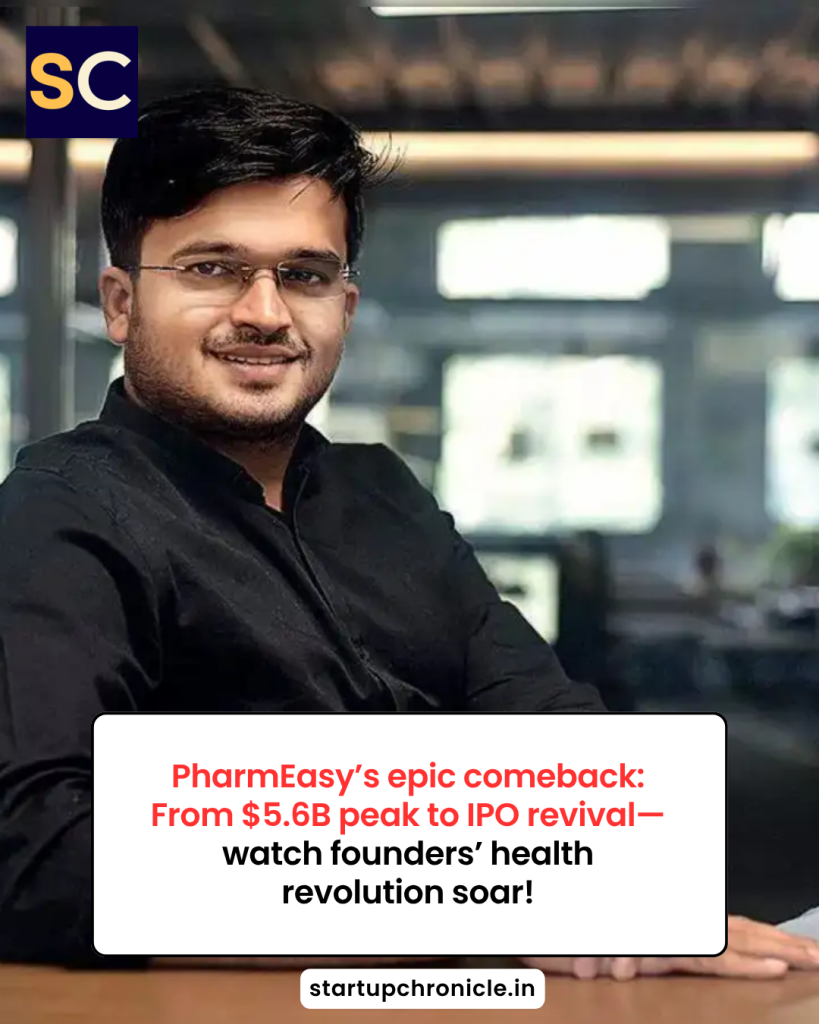In 2015, Prashant Tandon and Dharmil Sheth, spotting India’s fragmented pharmacy chaos, co-founded PharmEasy in Mumbai to deliver medicines, diagnostics, and telehealth to doorsteps. Now under API Holdings, serving 15 million monthly users, PharmEasy eyes a 2025 IPO relaunch post-restructuring, riding a 20% annual e-pharmacy surge, slashing costs for millions where 70% of healthcare spending remains out-of-pocket.
Tandon, born 1989 in Lucknow, cracked IIT-JEE at 16, earning a B.Tech from IIT Kanpur and an MBA from ISB Hyderabad. As Myntra’s Chief Product Officer until 2014, he scaled e-commerce before exiting PharmEasy in 2023 for ventures like Pristyn Care. “Trust drives healthcare innovation,” he told Entrepreneur India in 2023. Sheth, a 1988 Mumbai native with a K.J. Somaiya B.Tech and IMT Ghaziabad MBA, founded 91streets before PharmEasy. With Dr. Dhaval Shah (MBBS, XLRI MBA), they bootstrapped using family funds, launching an app linking patients to pharmacies amid 2014-15 access woes. “Tech bridges health gaps,” Sheth shared with YourStory in 2020.
PharmEasy grew from a discount aggregator (20% off generics) to an omnichannel giant. The 2020 Ascent Health merger formed API Holdings, adding Siddharth Shah, Harsh Parekh, and Hardik Dedhia. Acquiring Thyrocare for $600 million in 2021 boosted diagnostics; now, 200+ warehouses, 10,000+ stores, and AI-driven recommendations serve 1,200 cities. B2C sales drive 80% revenue, with B2B and diagnostics contributing 20%. PharmEasy Plus (₹109/month for free delivery) enhances loyalty. Despite a 2020 CCI probe (cleared 2021) and ad backlash, 2022 licenses ensured compliance.
Funding reached $1.1 billion from Temasek, Prosus, TPG, and Bessemer. A 2021 TPG-led $300 million round hit a $5.6 billion valuation, fueling a shelved ₹6,250 crore IPO. FY24 saw revenue drop 15% to ₹5,664 crore, with losses at ₹2,533 crore after 20% workforce cuts. A 2023 ₹3,500 crore rights issue at a $710 million valuation (87% haircut) cleared debts; Janus Henderson marked it to $456 million in 2024. FY25 rebounded: revenue up 3.6% to ₹5,872 crore, losses down 40% to ₹1,517 crore, with Q2 FY26 showing 5% growth.
In January 2025, Sheth, Dhaval Shah, Parekh, and Dedhia stepped back from executive roles (<2% equity, board seats retained), with Siddharth Shah as CEO. They launched All Home, a $20 million home improvement startup at $120 million valuation. Tandon remains an investor. PharmEasy’s February 2025 board plans IPO relaunch, possibly via Thyrocare reverse merger. Swiggy Instamart tie-ups and 40% B2B revenue bolster growth. “We’re lean, profitability-focused,” Shah stated in January 2025.
| Fiscal Year | Revenue (₹ Crore) | Net Loss (₹ Crore) | Key Milestone |
|---|---|---|---|
| FY23 | 6,644 | 5,212 | $5.6B valuation |
| FY24 | 5,664 | 2,533 | Rights issue |
| FY25 | 5,872 | 1,517 | IPO prep |
PharmEasy cuts medicine costs 10-20%, fulfilling 50 million+ orders yearly, employing 10,000. Holding 15% of a ₹50,000 crore sector against Tata 1mg, it drives inclusion. Tandon’s post-exit words: “Healthcare’s a marathon; we’re leading.” PharmEasy’s $1 billion IPO dream fuels a healthier India, one delivery at a time.
Last Updated on Thursday, October 23, 2025 8:37 am by Startup Chronicle Team
